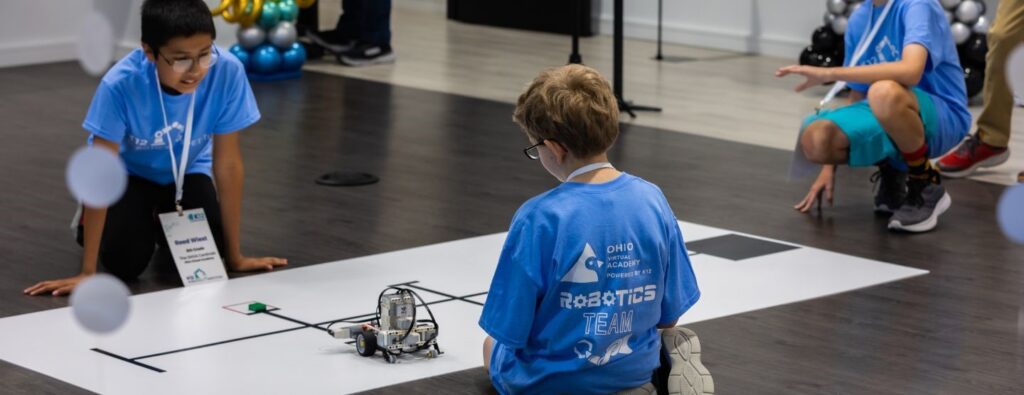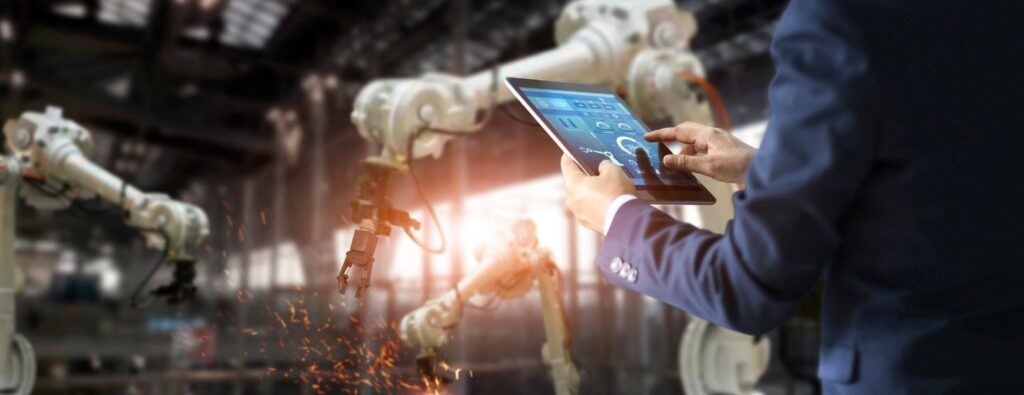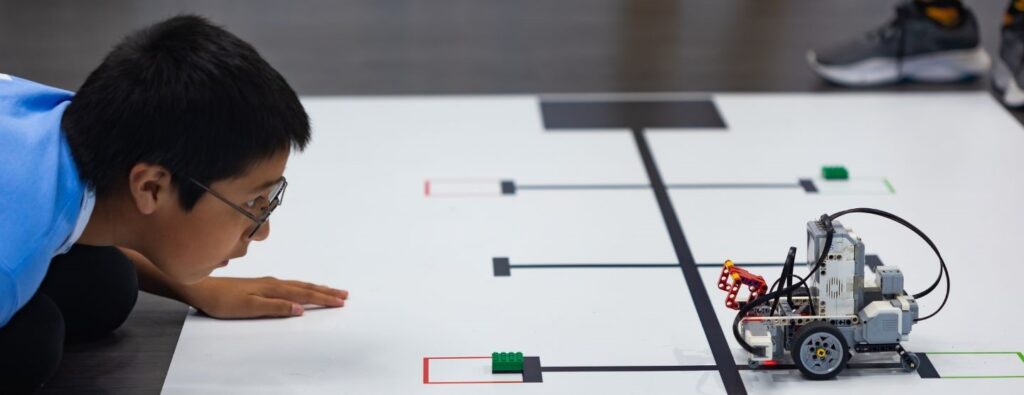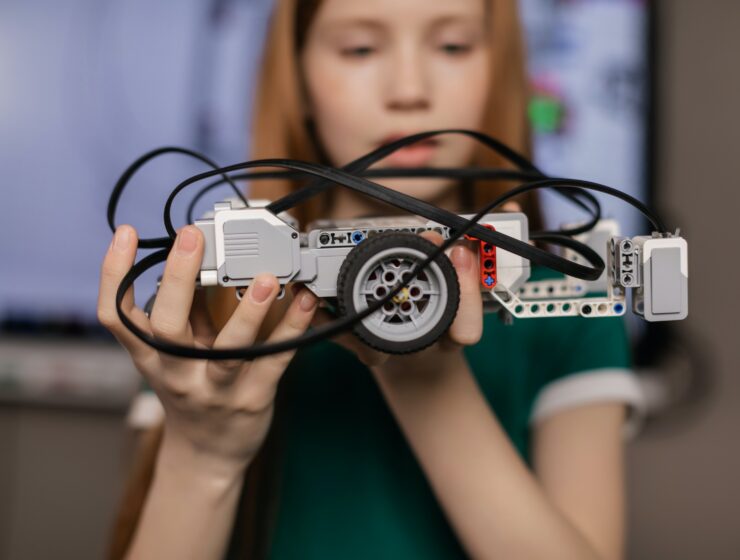In an era marked by rapid technological advancements, robotics stands at the forefront of innovation, revolutionizing industries and reshaping the workforce. For those with a passion for creativity, problem-solving, and the desire to be at the cutting edge of technology, a background in robotics offers exciting possibilities for a future career. In this blog, we’ll explore the fascinating world of robotics and how it can pave the way for a fulfilling and rewarding career.
Understanding Robotics: The Building Blocks
Primary school is a time of self-discovery, growth, and exploration. It’s also a critical period for laying the foundation for future careers. One avenue that has gained significant recognition for its potential to shape promising careers is involvement in robotics leagues. Before delving into career opportunities, let’s understand what robotics entails. Robotics is the intersection of science, engineering, and technology that deals with the design, construction, operation, and use of robots. Robots are machines that can perform tasks autonomously or semi-autonomously, and they can be found in a wide range of applications, from manufacturing and healthcare to space exploration and entertainment.

The Educational Journey of Building Technical Skills
High school and middle school robotics leagues, such as the K12 Robtocis League, FIRST Robotics Competition , and VEX Robotics, provide students with hands-on experience in designing, building, and programming robots. These activities offer a unique opportunity to learn technical skills that are in high demand in today’s job market. Students work with a diverse range of materials, from metal and electronics to software, gaining practical expertise that can be applied to various careers in robotics and engineering.
Fostering Teamwork and Collaboration
In robotics leagues, students work as part of a team to design and build robots that can complete specific tasks or challenges. This collaborative environment teaches valuable teamwork and communication skills, which are essential in any career. Learning to collaborate effectively is especially crucial in fields like robotics, where multidisciplinary teams come together to create complex systems.
Problem-Solving and Critical Thinking
One of the key skills cultivated through participation early on in robotics leagues is problem-solving. Teams often face complex challenges and tight deadlines, requiring students to think on their feet and find innovative solutions. These problem-solving abilities are highly transferable and are prized by employers across various industries.

Exposure to Real-World Engineering Challenges
Robotics competitions simulate real-world engineering challenges. Students are tasked with designing robots that can perform tasks, such as navigating obstacle courses, picking up objects, or solving puzzles. This exposure to practical engineering problems provides valuable insights into the world of robotics and inspires many students to pursue careers in this field.
Networking Opportunities
Robotics leagues offer students the chance to connect with professionals and mentors from the industry. These connections can lead to internships, job opportunities, and valuable guidance for future career choices. Networking is a powerful tool for career development, and high school robotics leagues provide an excellent platform for making these connections.
Scholarships and Financial Support
Many colleges and universities recognize the value of robotics experience and offer scholarships and financial incentives to students who have excelled in these programs. This support can significantly reduce the financial burden of higher education, making it more accessible to students interested in pursuing careers in robotics and technology.

Diverse Career Paths
Participating in robotics leagues can open doors to a wide range of career paths. Graduates often find themselves in roles such as robotics engineers, software developers, automation specialists, mechanical engineers, artificial intelligence researchers, and more. The skills and experiences gained through robotics competitions are versatile and can be applied to numerous industries, including manufacturing, healthcare, aerospace, and entertainment.
Career Opportunities in Robotics

The world of robotics offers diverse and exciting career opportunities. Here are some paths you can explore:
- Robotics Engineer: As a robotics engineer, you’ll be involved in designing and building robots for various applications. This role requires expertise in mechanical and electrical engineering, as well as programming skills to create the algorithms that control robot movements and tasks.
- Robot Programmer: Robot programmers focus on writing the code that instructs robots to perform specific tasks. This role is crucial in industries like manufacturing, where robots are used in assembly lines.
- Robotics Researcher: Researchers in robotics work on cutting-edge projects to advance the field. They explore new technologies, algorithms, and applications for robots, pushing the boundaries of what’s possible.
- Automation Specialist: Automation specialists work to integrate robotic systems into existing processes, enhancing efficiency and productivity in industries like logistics, agriculture, and healthcare.
- AI and Machine Learning Engineer: With the increasing integration of artificial intelligence and machine learning in robotics, there’s a growing demand for experts in these fields to develop algorithms that enable robots to learn and adapt to their environments.

Industry Applications
The application of robotics is vast and continually expanding. Some industries where robotics plays a pivotal role include:
- Manufacturing: Robots are used extensively in manufacturing for tasks like assembly, welding, and quality control, increasing precision and productivity.
- Healthcare: In healthcare, robots assist with surgeries, perform repetitive tasks, and provide support for individuals with disabilities.
- Agriculture: Agricultural robots help with tasks like harvesting crops, planting seeds, and monitoring soil conditions, contributing to more sustainable farming practices.
- Space Exploration: Robots like the Mars rovers have been instrumental in exploring other planets and gathering valuable data.
- Entertainment: Robotics is also used for entertainment purposes, with applications ranging from animatronics in theme parks to drones used in film production.

Robotics leagues are more than just extracurricular activities; they are pathways to promising careers in the ever-evolving world of robotics and technology. These programs not only equip students with valuable technical skills but also nurture essential soft skills like teamwork, problem-solving, and critical thinking. By participating in robotics leagues, students gain exposure to real-world engineering challenges, make invaluable industry connections, and even access financial support for their education.
If you’re a high school or middle school student with a passion for technology, consider joining a robotics league. An early background in robotics offers a dynamic and rewarding path for those with a passion for technology and a desire to shape the future. Whether you’re interested in designing robots, programming them, or pushing the boundaries of what they can do, the world of robotics holds a wealth of possibilities. As technology continues to advance, the demand for skilled professionals in robotics will only grow, making it an excellent field for those seeking a future-proof career at the forefront of innovation. So, if you’ve ever dreamed of building the robots of tomorrow or exploring uncharted technological territories, a career in robotics might be your calling.




